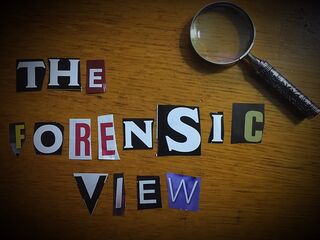Stress
How We Process Under Pressure: The Loud Sounds of Silence
Even our basic perceptual processes are not immune to high-stress distortion.
Posted May 6, 2022 Reviewed by Tyler Woods
Key points
- Under high stress, even loud sounds may become essentially inaudible.
- This points to the fact that even basic perceptual processes, as well as those of higher thinking, are not immune to the effects of stress.
- Psychological pressure can alter the ways in which we perceive the world, as well as the ways we interpret that world.
- The application of experimental psychology to the high-stress forensic world may yield valuable insight into these stress-based alterations.

High stress, including the very high stresses typical of many crime and tactical situations, can change our thinking and our interpretation of what is going on around us, as we have discussed in previous posts on Forensic Views, especially in our current series on How We Process Under Pressure.
For many of us, this unpleasant fact may make sense. Thinking and cognitive interpretation are complex processes, subject to many influences. We change our minds all the time; it makes sense that stress might prove to be among the forces that instigate such change.
But we may feel differently about perception. Perceptual processes, involving what we see and hear, may seem more inflexible. Compared to higher interpretive powers, they need to be. If you wonder whether a loved one loves you back, well, there’s room there for consideration and multiple possible interpretations. There is also, of course, room for the interpretation of that which is directly and physically perceived.
As we've seen in previous posts, astronomers have interpreted natural features on Mars as alien-built canals, frontier cavalrymen occasionally interpreted Sioux and Cheyenne warriors and horses as fellow U.S. cavalry, and all sorts of things have been interpreted, by all sorts of people, as alien spaceships, Bigfoot, spirits, and many other supernatural objects and entities. Such interpretation of natural things as other, perhaps less realistic, phenomena is at least psychologically understandable; these interpretive processes are major and important sources of the eyewitness errors so prevalent in the criminal justice system (e.g., Sharps, 2022).
But what if there really is no room for interpretation? What if, in good light, you suddenly see a loved one turn into a Komodo Dragon, or a Siberian Tiger about to eat your leg, or you suddenly hear the loved one hissing at you in the manner favored by the larger of the tropical iguanas? This type of perceptual distortion, in the absence of any real interpretive wiggle-room, would be a different thing altogether.
Primary perception is the basis of reality as we know it. Assuming a given thing is perceptible, whatever that thing may be interpreted to be, means it's either there or it isn’t. If you see or hear something when it isn’t there at all, you’re hallucinating, which, in mental health terms, is not good.
Hallucinations, visual or auditory, lie in the province of psychopathology. If we’re having them, we may be in a psychotic state, have specific types of brain damage, or we’re trying to melt our brains with narcotics, booze, or other suicidal hobby equipment. Beyond these typical sources of hallucinations, there is another source of false perceptions: high stress, including the stress of the battlefield or that of the crime scene.
We can also perceive false absence, meaning that we are, in fact, in the presence of something absolutely real, that we do not perceive at all.
This is a documented phenomenon in stressful situations (e.g., Artwohl & Christensen, 1997; Klinger, 2004; see also Sharps, 2022). We’ve seen it in previous Forensic Views in the case of tunnel vision, in which an observer, under stress, may be so focused on the core of the action observed that he or she fails to notice threats that appear in the periphery of the visual field.
There is a related phenomenon in the auditory realm. Under tactical levels of stress, a small number of individuals report sounds as louder than they really are. A much larger percentage of individuals report them as quieter than they actually are. This auditory exclusion is, in fact, the most typical reported distortion of our mental faculties under pressure.
And sometimes we don’t hear actual sounds at all.
In one case I examined, two police officers, weapons drawn, approached an uncooperative suspect. One officer was a few feet in front of the other, walking to one side. At a threatening motion from the suspect, the officer behind fired, striking the suspect. On seeing the suspect fall, the officer walking in front appeared startled, looked from left to right, and examined his own gun in what appeared to be momentary bafflement (I observed this incident in high-resolution video detail, and it was very obvious, as reported, that the officer in front had no idea why the suspect had fallen). A large-caliber handgun had been fired from within a few feet of his ears, yet he completely failed to hear the shot.
In another case, several officers, within feet of each other, fired several shots each at an attacking suspect who charged directly at them from the front. The weapons not only included the typical police semiautomatic handguns, but also twelve-gauge shotguns.
Without ear protection, the fire of nine-millimeter and forty-caliber police-issued handguns, especially in any reasonable proximity to one’s ears, is distinctly unpleasant and painfully loud. But anyone who has ever been in similar proximity to a twelve-gauge shotgun blast has felt the nearly shattering auditory effect. It’s just not something you forget.
Yet, although the reports from the officers in this case were inconsistent, it was clear that several officers simply did not hear the shots fired by their colleagues from one or more of these weapons, including the shotguns. This profound level of auditory exclusion was, in fact, the primary reason for the inconsistency of their reports.
These instances should serve to show the extreme importance of taking auditory exclusion into consideration in any given criminal case in which auditory information is of importance; but beyond that, they serve as something of a capstone to any consideration of processing under pressure—the fact that even the primary perceptual powers of human beings can be altered, to an astonishing degree, by the stress of a given experience.
How do these, and similar phenomena, fit within the overall corpus of what we know about human psychology? In our next posts on The Forensic View, we will examine important research that speaks directly to these issues, in the forensic and related realms.
References
Artwohl, A., & Christensen, L. (1997). Deadly Force Encounters: What Cops Need to Know to Prepare For and Survive a Gunfight. Boulder: Paladin Press.
Klinger, D. (2004). Into the Kill Zone: A Cop's Eye View of Deadly Force. San Francisco: Jossey-Bass.
Sharps, M.J. (2022). Processing Under Pressure; Stress, Memory, and Decision-Making in Law Enforcement. Flushing, NY: Looseleaf Law.




